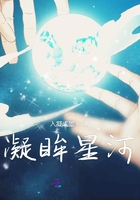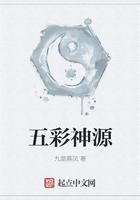Ten years would pass before this final symphony' s completion, ten years in which Beethoven shed blood over every note, considering and rejecting over two-hundred different versions of the "Joy" theme alone. At the end of that time, he offered to the public a radically new creation that was part symphony and part oratorio, a hybrid that proved puzzling to his less daring observers. The conductor Louis Spohr, who knew Beethoven, asserted privately that the piece was "tasteless," and Verdi, who, it must be admitted knew a thing or two about how to blend music and words, lamented that the grand finale was "badly set." Yet others have better understood Beethoven' s final symphonic work, and have defended it eloquently. Let us give Claude Debussy the last word: "It is the most triumphant example of the molding of an idea to the preconceived form; at each leap forward there is a new delight, without either effort or appearance of repetition; the magical blossoming, so to speak, of a tree whose leaves burst forth simultaneously. Nothing is superfluous in this stupendous work. Beethoven had already written eight symphonies and the figure nine seems to have had for him an almost mystic significance, he determined to surpass himself. I can scarcely see how his success can be questioned."
这是一则耳熟能详的故事:迈入老年的贝多芬,疾病缠身,双耳失聪,却出色地完成了《第九交响曲》首次公演的指挥。甚至当乐队与合唱队停止表演,成功新作到达尾声,观众已经开始热烈鼓掌后,贝多芬依然陶醉在忘我的指挥中,直到一位歌手把他转向观众,他才知道雷鸣般的欢呼声已经响彻整个礼堂。
当时的场景令人感动不已,就连愤世嫉俗的历史学家都产生了怀疑,他们简直不敢相信交响曲能够如此完美。可是这一次,那些愤世嫉俗者显然错了,因为几位出席了1824年5月7日那场意义非凡的演出的观众复述了同样的故事。可他们的故事有所不同。一些人认为戏剧性的时刻发生在交响曲结束时,而另外一些人则坚持认为是在谐谑曲结束时。随着时光流逝,观众们不断地向传记作者讲述,这个故事的不同说法也就随之产生了。不管观众的掌声是何时响起的,贝多芬听不到声音的事实证明:如此美妙的乐曲,他从未听到一个音符。想象一下这个冷酷的事实,你不禁会赞叹命途多舛的贝多芬居然能够指挥合唱团演唱如此欢快美妙的乐曲。
贝多芬第一次看到席勒的诗《欢乐颂》是在30年前,当时他尚未创作《第九交响曲》。《欢乐颂》于1785年首次出版,并在德国大受欢迎。有证据显示:早在1792年,贝多芬就开始为这首诗配乐,1808年、1811年贝多芬也有配乐的尝试。在他的笔记本里,记录了关于创作配乐的种种想法。品味席勒颂诗的岁月伴随着贝多芬个人的成长和事业的进步。刚开始接触席勒的诗时,贝多芬还是个乐观的青年艺术家,那时还没完成第一交响曲。然而到1812年第三次拜读《欢乐颂》时, 贝多芬已经创作了《第八交响曲》。可能是因为经历过多年的音乐生涯,贝多芬萌发了一个想法——这首饱含激情的诗应该配上震撼心灵的乐曲。因此,为了给席勒的诗句增光添彩,贝多芬随即开始创作《第九交响曲》。
贝多芬花了十年时间才完成最后的交响曲。在这十年里,每一个音符他都付出了很大心血,对200多个不同版本的《欢乐颂》交响曲进行了斟酌取舍。最终,他奉献出一个全新的作品, 这支交响曲包含了宗教剧元素和交响乐元素,令所有观众震撼不已。熟识贝多芬的指挥家路易斯·施波尔私下认为这支曲子平淡乏味,略通配乐的沃迪则哀叹宏伟的终曲是败笔。不过,那些能够理解贝多芬最后交响曲的人则据理力争。看看克洛德·德彪西的评价:“《第九交响曲》是一部将新思想赋予固有形式的成功典范,每一个音符都给人不一样的惊喜,没有冗余之处,没有矫揉造作之感,是一株叶与花共同绽放的神奇树木,在这个宏大乐章里没有繁缛冗余。贝多芬已经创作了八部交响曲,《第九交响曲》把他推向了一个新的高度,他要超越自我。我不明白人们怎么能质疑他的成功呢?”
很难想象一个失去听觉的人竟能演奏出如此完美的乐章,这简直是人间奇迹。其实世界上每天都上演着这种奇迹,面对人生的磨难、困境,那些不屈不挠的人毅然选择了坚强,于是就连上帝也被他们感动了,便在他们身上创造了奇迹……
orchestra [':kistr] n. 管弦乐队
The orchestra played a Mozart symphony.
乐队演奏了一首莫扎特的交响曲。
chorus ['k:rs] n. 合唱;合唱队;歌咏队
Tom sang the verses and everybody joined in chorus.
汤姆唱独唱部分,然后大家一起唱合唱部分。
cynical ['sinikl] adj. 怀疑的;愤世嫉俗的
The boys made several cynical remarks to cover up their
disappointment at being left out of the play.
小伙子们讲了些冷嘲热讽的话,以掩盖他们被比赛拒之门外的失望。
discount ['diskaunt] v. 不考虑;不全信;认为……不重要
You must discount much of what he says.
他说的好些话,你必须打个折扣听。
贝多芬依然陶醉在忘我的指挥中,直到一位歌手把他转向观众,他才知道雷鸣般的欢呼声已经响彻整个礼堂。
品味席勒颂诗的岁月伴随着贝多芬个人的成长和事业的进步。
他要超越自我。
Their stories vary somewhat in detail.
in detail:详细地
The magical blossoming, so to speak, of a tree whose leaves burst forth simultaneously.
burst forth:突然出现;爆发出;迸发出
战胜你内心的敌人
Facing the Enemies within
佚名 / Anonymous
We are not born with courage, but neither are we born with fear. Maybe some of our fears are brought on by your own experiences, by what someone has told you, by what you' ve read in the papers. Some fears are valid, like walking alone in a bad part of town at two o' clock in the morning. But once you learn to avoid that situation, you won' t need to live in fear of it.
Fears, even the most basic ones, can totally destroy our ambitions. Fear can destroy fortunes. Fear can destroy relationships. Fear, if left unchecked, can destroy our lives. Fear is one of the many enemies lurking inside us.
Let me tell you about five of the other enemies we face from within. The first enemy that you' ve got to destroy before it destroys you is indifference. What a tragic disease this is! "Ho-hum, let it slide. I' ll just drift along." Here' s one problem with drifting: you can' t drift your way to the top of the mountain.
The second enemy we face is indecision. Indecision is the thief of opportunity and enterprise. It will steal your chances for a better future. Take a sword to this enemy.
The third enemy inside is doubt. Sure, there' s room for healthy skepticism. You can' t believe everything. But you also can' t let doubt take over. Many people doubt the past, doubt the future, doubt each other, doubt the government, doubt the possibilities and doubt the opportunities. Worse of all, they doubt themselves. I' m telling you, doubt will destroy your life and your chances of success. It will empty both your bank account and your heart. Doubt is an enemy. Go after it. Get rid of it.














